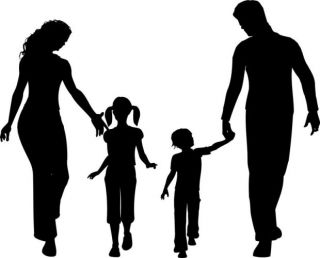Self-Control
5 Reasons Why Poverty Reduces Self-Control
There's a two-way street between poverty and poor choices.
Posted September 22, 2015
When considering poverty, our national conversation often turns to its origins. It is natural for us to look for attributes of a person that led him or her to poverty, such as poor self-control. David Brooks of The New York Times, for instance, placed the blame on poor people’s lack of virtue. Writing in the Wall Street Journal, Congressman Paul Ryan argues that poor people’s individual choices are at fault.
Bad choices can certainly be a factor in poverty. But just because someone makes bad choices doesn’t mean they lack virtue or have no self-control.
To the contrary, psychology research has discovered a variety of perfectly good reasons why poor people make the choices they do. These reasons explains how a smart, moral person can become trapped in a cycle of poverty.
Reason 1: Poverty reduces people's ability to think clearly.

Under the right conditions, our brains are capable of unparalleled levels of abstract thought. But under adverse conditions, our brains have evolved to cut down on the flourishes and focus in on the basics of survival in the here and now. And in our society, hardly anything is more adverse to survival than poverty. It’s maladaptive to spend precious mental resources thinking about calculus when you can’t afford dinner. Scarcity caused the equivalent of a 13 point drop in IQ in one study. That kind of handicap will make it hard for anyone to engage in the high-level thinking required for self-control.
Reason 2: Poverty limits opportunities for parents to teach their children.

Like any other kind of thinking, self-control can be taught. Children do better at self-control (and in school) when their parents teach them to solve problems independently and to participate in decisions. But that kind of involved parenting takes time, and financially poor parents are often “time poor” too. Family factors, such as nurturance and stimulation, that are limited by time poverty are directly linked to mental development. Furthermore, it makes sense that people living in poor, dangerous neighborhoods don’t give their children as much autonomy as people living in less dangerous neighborhoods. As a result, poor working parents are prevented from—not incapable—of teaching self-control to their children.
Reason 3: Poverty forces people to focus on the present.

The very definition of self-control is choosing behaviors that favor long-term outcomes over short-term rewards. But why worry about tomorrow if you don’t know you’ll survive today? Research supports this idea by showing that poor people have an increased focus on the present and tend to spend their money on immediate needs such as food and utilities. Working toward future rewards also requires trust that those rewards will be waiting for you when you get there. For example, children playing the classic “marshmallow” delay-of-gratification game don't wait as long for the larger reward if they learn that the experimenter is unreliable compared to children who interact with a reliable experimenter. And, of course, instability and unpredicability are hallmarks of life in poverty.
Reason 4: Working to escape poverty is unhealthy.
Working out of poverty is an uphill struggle. The extra work required of people at the bottom to move up takes its toll. Poor children who succeed in school and life, particularly members of minority groups, often have worse health than those who fail. A recent study found that adolescents from poor backgrounds with higher self-control actually aged faster at the molecular level than those with lower self-control. Self-control and achievement require poor people to overcome a number of structural barriers and obstacles. Navigating this difficult terrain causes wear and tear on key parts of the body such as the immune system and ultimately deteriorates health.
Reason 5: Poverty restricts people’s vision of what is possible.
The Little Engine Who Could thought she could climb up the hill before she actually did.
She had what psychologists call “self-efficacy,” the belief in her own abilities. An important source of self-efficacy is watching similar others accomplish goals. Poverty doesn’t occur in isolation, so children growing up in poor neighborhoods are short on models of people who escape poverty and long on models of people who do not. A child born in the bottom fifth of the income distribution has less than a one-in-ten chance of moving to the top fifth, and even the brightest poor children are still less likely to complete college than average wealthy children. Based on observing those around them, children in poverty have little reason to have high self-efficacy about self-control.
What can be done?
Together, these reasons are enough for anyone to give up. But the point of this article is not to say that poverty is hopeless. Science has identified lots of ways to teach people how to become better at self-control. The key to helping people is not to blame them but instead to address the underlying factors that perpetuate poverty, especially early in life.
A longer version of this article appears at The Conversation.
Elliot Berkman is Assistant Professor of Psychology and Director of the Social and Affective Neuroscience Laboratory at the University of Oregon. Follow him on Twitter @Psychologician.



